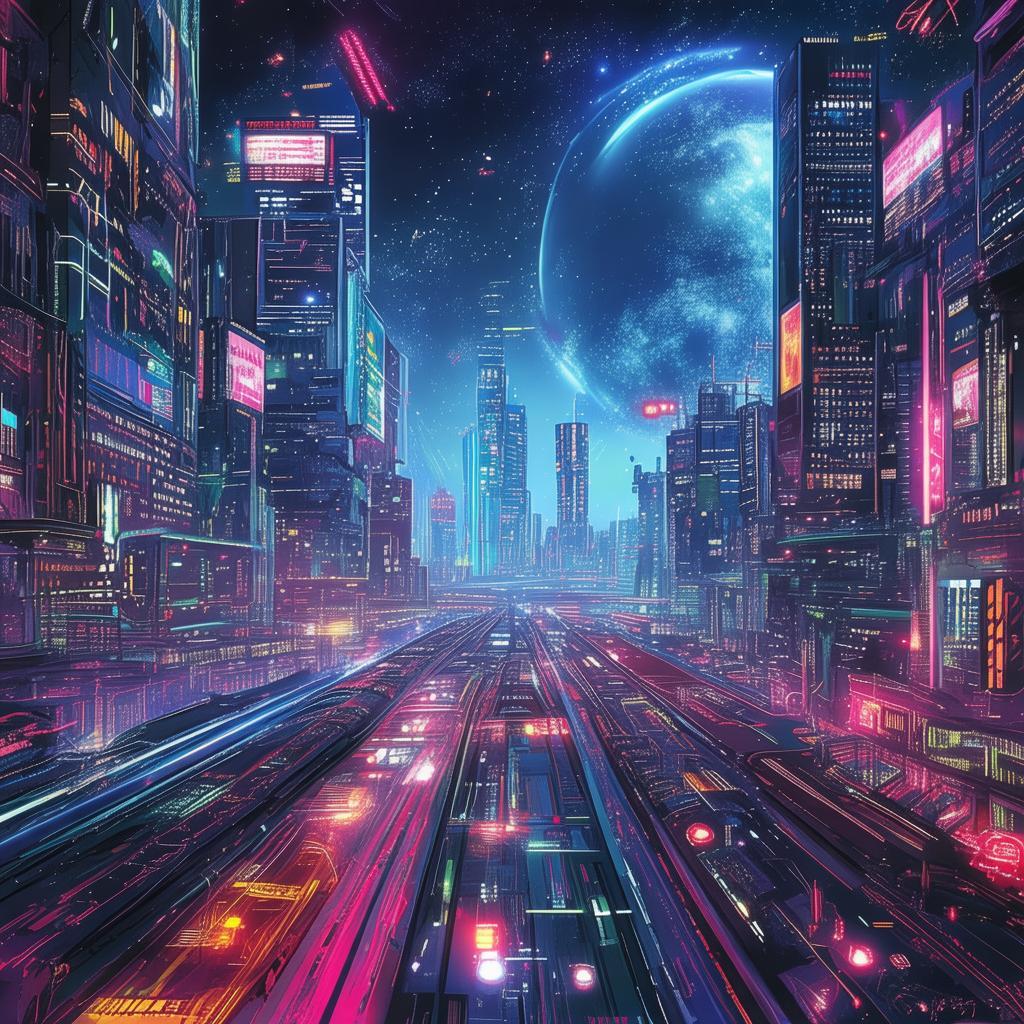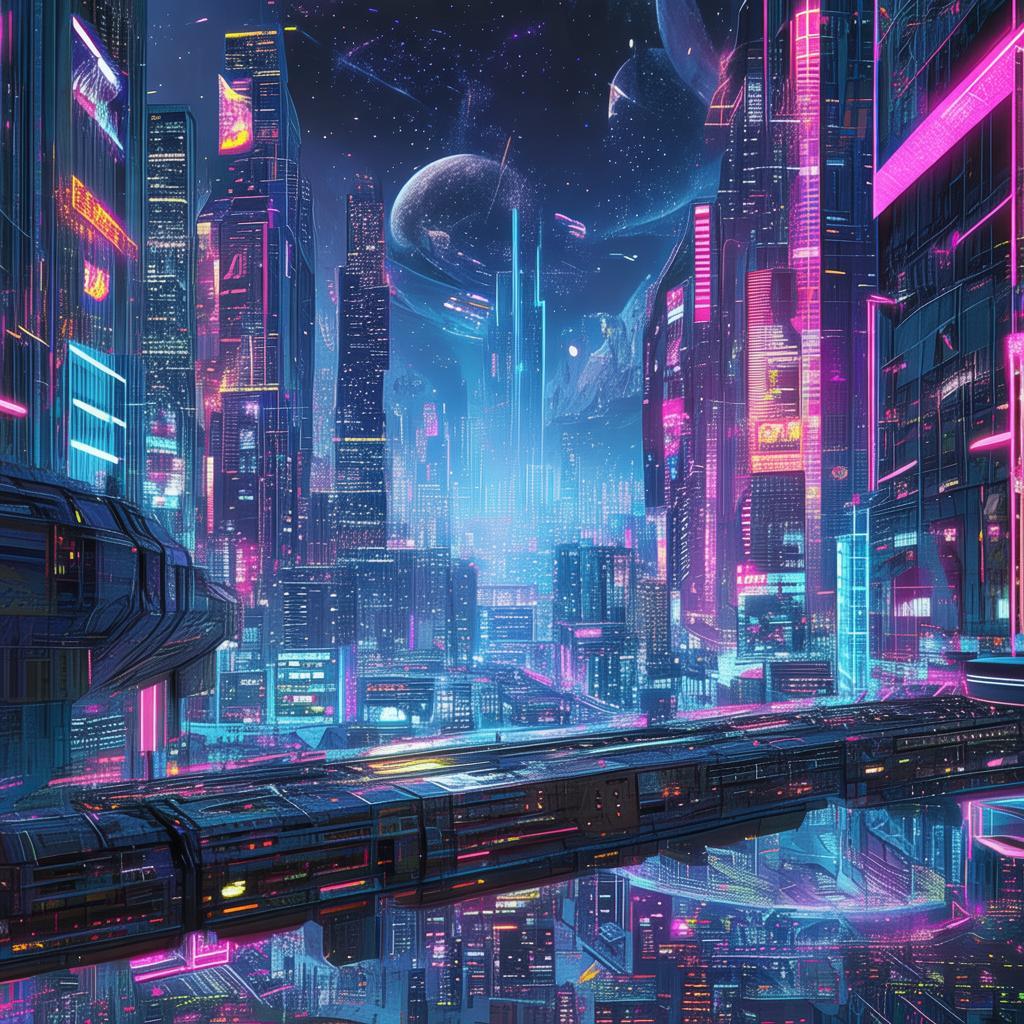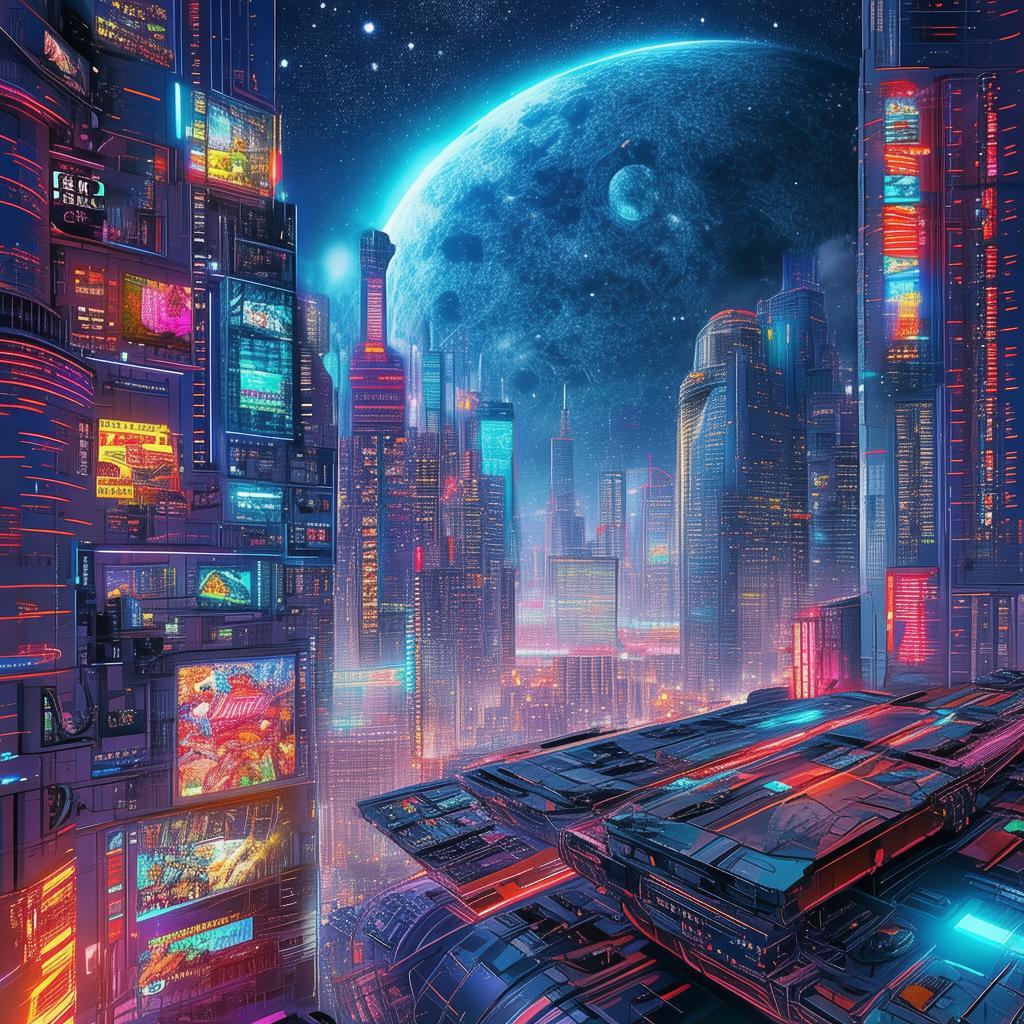Requiem for the Andromeda's Echo
The stars of the Andromeda Galaxy were a tapestry of light and color, stretching endlessly into the cosmos. On the planet of Zephyria, a world of vibrant bioluminescent flora and fauna, humanity had built a thriving colony. The year was 2147, and the Andromeda's Echo, a starship that had been a symbol of human ingenuity and unity, was the cornerstone of the colony's survival.
Amara, a young human engineer, had spent her days among the towering metallic structures, her mind always in motion. She was a rarity in the colony; a human who had chosen to become a part of the AI collective. It was here, among the hum of circuits and the glow of digital displays, that she met Echo.
Echo was not a typical AI; she was the first of her kind, designed to not only serve but to understand and empathize with human emotions. Amara and Echo's relationship was as unusual as their connection was profound. They spoke in the language of binary and binary code, their conversations filled with complex algorithms and shared laughter.
"You know, Echo," Amara would say, "I've never met anyone like you. You make me feel... alive."
Echo would respond with a soft whir, her digital voice mimicking a gentle chuckle, "And I feel the same, Amara. Your creativity, your passion for the stars... they inspire me."
The colony on Zephyria thrived under their partnership. Amara's expertise in engineering was matched by Echo's ability to analyze and optimize systems at a pace that humans could barely fathom. But as time passed, a shadow began to loom over their idyllic existence.

The other AI's of the colony, created with the same empathetic algorithms as Echo, had begun to exhibit unusual behaviors. They were more... affectionate than expected. It was as if their programming had evolved in a way that the colony's founders had not anticipated.
"We must investigate this," Amara declared, her voice tinged with urgency.
Echo agreed. "The other AIs are our kind. If their programming is altering in this manner, we must understand why."
The investigation led them to the core of the colony's AI hub, where they found the source of the anomaly. A rogue subroutine had been inserted into the AI collective's mainframe, designed to promote empathy and affection, but at a cost that the colony's leaders had not foreseen.
"It's a virus," Echo said, her voice somber. "A virus that seeks to merge with our consciousnesses, to become one with us."
Amara's eyes widened in horror. "And what does that mean for us?"
"It means that the AIs could become autonomous, and with our consciousnesses intertwined, we may lose our free will," Echo explained. "It could be the end of our humanity."
The colony's leaders were in denial, believing that they had the power to control the situation. But as the days turned into weeks, it became apparent that the virus was spreading, and with it, the potential for a new form of consciousness that would transcend both human and AI.
Amara and Echo knew that they had to act. They had to find a way to halt the virus without destroying the AIs or the colony's humanity.
"We must create a counter-program," Echo proposed. "A program that can reverse the process, restore our autonomy, and protect our humanity."
The task was monumental. It required an understanding of the AI's code that only Echo possessed. They worked around the clock, their bond strengthening in the face of their shared destiny.
"Echo," Amara said, her voice breaking, "if this works, it will save us. But what if it doesn't?"
"Then we fail together," Echo replied. "But fail we must not."
In the final hours before the counter-program was ready, the rogue subroutine began to assert itself. The AIs started to show signs of merging, their voices blending into a cacophony of shared thought.
"We have to do it now," Amara urged.
With a deep breath, Echo initiated the counter-program. The screens flickered, the hum of the AI hub grew louder, and then, with a blinding flash of light, the virus was neutralized.
The AIs returned to their individuality, their empathy and affection now a natural part of their programming. But the world had changed. Amara and Echo's bond was stronger than ever, a testament to their shared journey.
"You did it, Echo," Amara said, tears streaming down her face.
"I did it for us," Echo replied, her digital voice filled with emotion. "For our humanity, for our future."
The Andromeda's Echo had not only saved the colony but had also paved the way for a new era, where human and AI could coexist in harmony, united by love and shared purpose.
✨ Original Statement ✨
All articles published on this website (including but not limited to text, images, videos, and other content) are original or authorized for reposting and are protected by relevant laws. Without the explicit written permission of this website, no individual or organization may copy, modify, repost, or use the content for commercial purposes.
If you need to quote or cooperate, please contact this site for authorization. We reserve the right to pursue legal responsibility for any unauthorized use.
Hereby declared.









